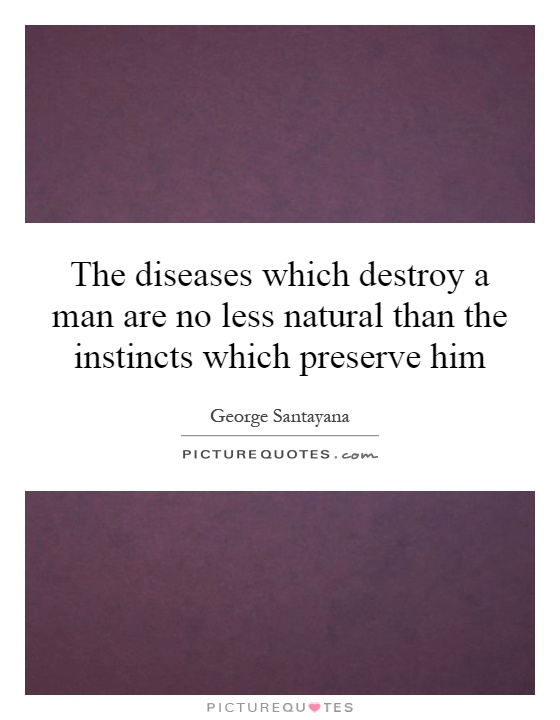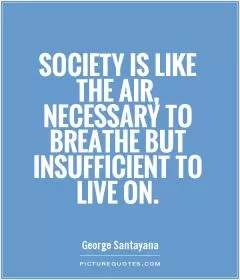The diseases which destroy a man are no less natural than the instincts which preserve him

The diseases which destroy a man are no less natural than the instincts which preserve him
George Santayana, a renowned philosopher and essayist, once stated, "The diseases which destroy a man are no less natural than the instincts which preserve him." This profound statement sheds light on the dual nature of human existence, where both life-sustaining instincts and debilitating diseases are inherent aspects of our being.Santayana's assertion challenges the common perception that diseases are unnatural or abnormal occurrences in the human experience. Instead, he argues that diseases are as natural as the instincts that drive us to survive and thrive. In this view, diseases are not external forces that invade the body, but rather internal processes that are part of the intricate web of life.
From a biological perspective, diseases can be seen as the result of imbalances or dysfunctions in the body's natural processes. In this sense, diseases are a natural consequence of the complex interplay of genetic, environmental, and lifestyle factors that shape our health. Just as instincts such as hunger, thirst, and self-preservation are essential for our survival, diseases are a natural part of the human condition that can challenge and test our resilience.
Moreover, Santayana's statement highlights the interconnectedness of health and illness in the human experience. While instincts like self-preservation and reproduction are essential for our survival as individuals and as a species, diseases can also play a role in shaping our physical and mental well-being. In this sense, diseases are not simply obstacles to be overcome, but also opportunities for growth, adaptation, and transformation.
In the context of Santayana's broader philosophy, this statement can be interpreted as a reflection of his belief in the cyclical nature of life and death. Just as instincts drive us to seek out pleasure, avoid pain, and ensure our survival, diseases remind us of the fragility and impermanence of our existence. By acknowledging the naturalness of diseases, we can cultivate a deeper understanding and acceptance of the inevitable challenges and uncertainties that come with being human.












 Friendship Quotes
Friendship Quotes Love Quotes
Love Quotes Life Quotes
Life Quotes Funny Quotes
Funny Quotes Motivational Quotes
Motivational Quotes Inspirational Quotes
Inspirational Quotes